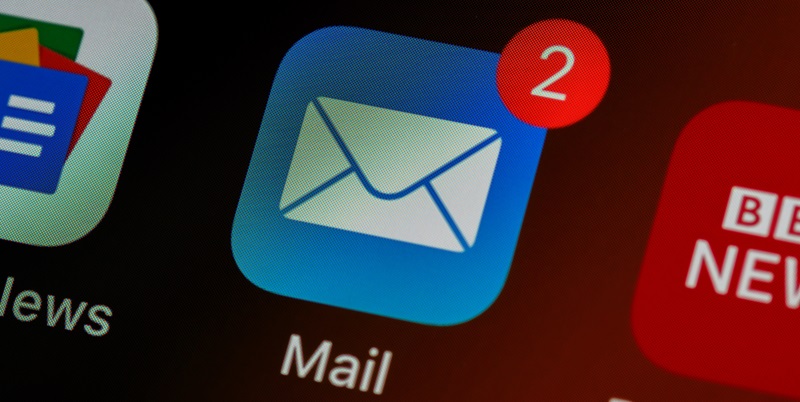Email marketing has long been regarded as a powerful tool for businesses to connect with their audience. However, to maximize its effectiveness, it should be seen as a means of personal outreach rather than a mass communication tool. In this article, we will explore various strategies that can help you personalize your email marketing campaigns and make them more engaging for your subscribers.
Personalized messages
The days of generic emails are long gone. To truly connect with your subscribers, it is crucial to create personalized messages that resonate with them on an individual level. Start by segmenting your email list based on demographics, preferences, purchase history, or any other relevant data. This will allow you to craft tailored messages and offers for each segment, increasing the chances of engagement and conversion. Moreover, using personalization tokens, such as the subscriber’s name, in the subject line or introduction of the email can create a sense of familiarity and strengthen the connection.
Interactive Emails
In a crowded inbox, it is essential for your emails to stand out. One way to achieve this is by incorporating interactive elements into your emails. Interactive emails not only capture attention but also increase engagement and provide a memorable experience for your subscribers. Consider including features such as image carousels, GIFs, video snippets, or clickable sections that reveal additional content. By adding interactivity, you can make your emails more engaging and encourage subscribers to take action.
Encouraging user engagement
Encouraging your subscribers to share their experiences with your products or services can be a powerful way to increase brand loyalty and build trust. Social proof plays a significant role in purchasing decisions, so why not leverage it in your email marketing campaigns? Encourage your subscribers to leave reviews, provide testimonials, or share their success stories. You can incentivize their participation by offering discounts, exclusive content, or even featuring their stories in your emails or on your website. This not only promotes engagement but also creates a sense of community among your subscribers.
Targeted Product Recommendations
Data analytics can be a valuable asset in personalizing your email marketing campaigns. By leveraging data on your subscribers’ preferences, purchase history, or browsing behavior, you can send highly targeted and personalized product recommendations. This not only enhances the customer experience but also increases the likelihood of converting leads into customers. Use customer segmentation and automation tools to automate the process of analyzing data and sending tailored recommendations based on individual interests and needs.
Creating exclusivity
Everyone likes to feel special, and by offering exclusivity, you can make your subscribers feel wanted and valued. Consider providing exclusive offers, early access to sales or new products, or even personalized discounts based on individual preferences. By making your subscribers feel like VIPs, you foster a sense of loyalty and encourage them to remain engaged with your brand.
Storytelling approach
Gone are the days of aggressive sales pitches and promotional emails that fail to resonate with subscribers. Instead, focus on sharing your brand’s story or highlighting the stories of your team members, customers, or the people your products have helped. Storytelling creates an emotional connection and allows your subscribers to relate to your brand on a deeper level. Use email campaigns to share inspiring stories, customer testimonials, or behind-the-scenes insights. By doing so, you not only engage your audience but also foster a genuine connection that goes beyond a transactional relationship.
Unconventional Holidays
Incorporating lesser-known holidays into your email marketing campaigns can be a creative way to engage your subscribers. By celebrating quirky holidays or observances related to your industry, you can inject a sense of fun and excitement into your email communications. For example, if you are in the food industry, consider creating a campaign around National Taco Day or World Chocolate Day. Such campaigns not only create a sense of novelty but also make your emails more relevant and shareable among your subscribers.
Mystery Email Campaigns
Curiosity is an innate human trait, and leveraging it in your email marketing can be highly effective. Consider running mystery email campaigns where you offer hints or exclusive content that can only be fully revealed by opening the email. By creating a sense of intrigue and anticipation, you can pique the curiosity of your subscribers and increase open rates. This approach allows you to showcase new products, tease upcoming sales, or simply provide an element of surprise.
Sending “Just Because” emails
Not every email needs to have a specific goal or call to action. Sometimes, sending an email just to show appreciation can make a significant impact. Consider sending “just because” emails to express gratitude, offer support, or provide valuable content without any ulterior motive. These emails build goodwill and strengthen relationships with your subscribers. Remember, it’s the small gestures that often leave a lasting impression.
In a world saturated with mass communication, personalized outreach through email marketing can make a significant impact on your business. By incorporating strategies such as personalized messages, interactive emails, encouraging user engagement, targeted product recommendations, creating exclusivity, storytelling, unconventional holidays, mystery campaigns, and “just because” emails, you can forge stronger connections with your subscribers and drive better results. Embrace the power of personalization and watch your email marketing campaigns flourish.

